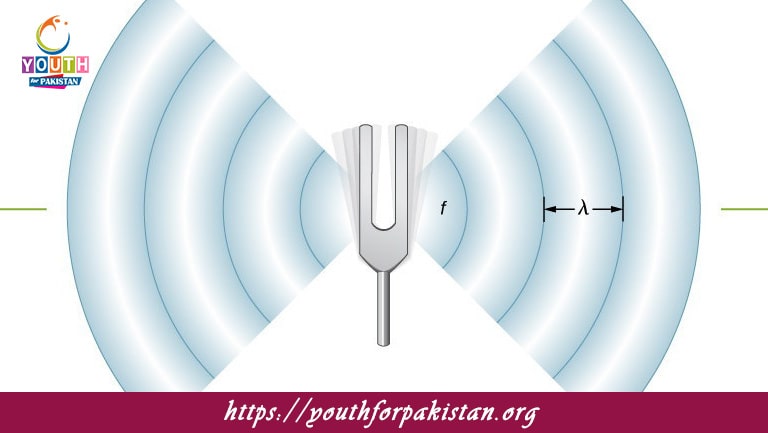Speed Of Sound In Air MDCAT MCQs with Answers

Welcome to the Speed Of Sound In Air MDCAT MCQs with Answers. In this post, we have shared Speed Of Sound In Air Multiple Choice Questions and Answers for PMC MDCAT 2024. Each question in MDCAT Physics offers a chance to enhance your knowledge regarding Speed Of Sound In Air MCQs in this MDCAT Online Test.
Speed Of Sound In Air MDCAT MCQs Test Preparations
The speed of sound in air at 20°C is approximately:
a) 330 m/s
b) 340 m/s
c) 350 m/s
d) 360 m/s
The speed of sound in air increases with:
a) Decreasing temperature
b) Increasing temperature
c) Increasing humidity
d) Decreasing pressure
At higher altitudes, the speed of sound in air:
a) Increases
b) Decreases
c) Remains constant
d) Becomes unpredictable
The speed of sound in air is primarily affected by:
a) The density of the air
b) The color of the air
c) The speed of the wind
d) The altitude only
The speed of sound in air is greatest in which of the following conditions?
a) Cold and dry air
b) Warm and dry air
c) Cold and humid air
d) Warm and humid air
The speed of sound in air can be calculated using the formula:
a)
=
v=
t
d
b)
=
v=
ρ
B
c)
=
331
+
0.6
v=331+0.6T
d)
=
v=
ρ
p
=
331
+
0.6
v=331+0.6T
At 0°C, the speed of sound in air is approximately:
a) 331 m/s
b) 340 m/s
c) 320 m/s
d) 350 m/s
If the temperature of the air increases by 10°C, the speed of sound in air approximately:
a) Decreases by 6 m/s
b) Increases by 6 m/s
c) Decreases by 1.6 m/s
d) Increases by 1.6 m/s
The effect of humidity on the speed of sound in air is that:
a) It decreases the speed of sound
b) It has no effect
c) It increases the speed of sound
d) It makes the speed of sound unpredictable
The speed of sound in air is directly proportional to:
a) The air pressure
b) The air density
c) The square root of the air temperature
d) The humidity
At which of the following conditions is the speed of sound the least?
a) At sea level
b) At high altitude in cold air
c) In warm humid air
d) In dry warm air
The speed of sound in air is most affected by changes in:
a) Temperature
b) Pressure
c) Humidity
d) Wind speed
The speed of sound in air is approximately 331 m/s at:
a) 10°C
b) 20°C
c) 0°C
d) 25°C
The speed of sound in air at 100°C is approximately:
a) 400 m/s
b) 460 m/s
c) 340 m/s
d) 300 m/s
The speed of sound is faster in:
a) Air than in water
b) Water than in air
c) Solids than in air
d) Gases than in liquids
The relationship between the speed of sound and temperature can be expressed as:
a)
∝
v∝T
b)
∝
v∝
T
c)
∝
1
v∝
T
1
d)
∝
2
v∝T
2
∝
v∝
T
In a medium with lower density, the speed of sound is:
a) Higher
b) Lower
c) Unchanged
d) Dependent on humidity
At what temperature is the speed of sound in air exactly 340 m/s?
a) 10°C
b) 15°C
c) 20°C
d) 25°C
The effect of air pressure on the speed of sound in air is:
a) Significant
b) Insignificant
c) Directly proportional
d) Inversely proportional
The speed of sound in air decreases with:
a) Increasing temperature
b) Increasing altitude
c) Increasing humidity
d) Increasing air pressure
The speed of sound in air at 25°C is approximately:
a) 331 m/s
b) 340 m/s
c) 350 m/s
d) 355 m/s
Sound travels fastest in which of the following environments?
a) Air
b) Water
c) Vacuum
d) Steel
The speed of sound in air is affected by:
a) The type of gas
b) The frequency of the sound
c) The amplitude of the sound
d) All of the above
The speed of sound in a humid environment compared to a dry environment is:
a) Lower
b) Higher
c) The same
d) Unpredictable
If the temperature of the air is doubled, the speed of sound:
a) Doubles
b) Quadruples
c) Increases by a factor of
2
2
d) Decreases by half
2
2
The speed of sound is independent of:
a) Medium density
b) Medium temperature
c) Medium composition
d) Medium color
The speed of sound in air can be increased by:
a) Lowering the temperature
b) Decreasing humidity
c) Increasing pressure
d) Increasing temperature
The approximate speed of sound in air at 0°C is:
a) 320 m/s
b) 330 m/s
c) 340 m/s
d) 350 m/s
At which of the following conditions will sound travel slowest?
a) High altitude, cold air
b) Low altitude, warm air
c) Low humidity, warm air
d) High humidity, warm air
The speed of sound in air at 35°C is approximately:
a) 355 m/s
b) 370 m/s
c) 340 m/s
d) 350 m/s
The speed of sound in air can be measured using:
a) A thermometer
b) A barometer
c) A speedometer
d) An echo test
Which factor does not affect the speed of sound in air?
a) Air pressure
b) Temperature
c) Humidity
d) Wind speed
The speed of sound in air is approximately 343 m/s at:
a) 15°C
b) 20°C
c) 25°C
d) 30°C
At what temperature does the speed of sound reach approximately 331 m/s?
a) -5°C
b) 0°C
c) 5°C
d) 10°C
In which medium does sound travel slowest?
a) Air
b) Water
c) Steel
d) Glass
The speed of sound in a gas is proportional to:
a) The square root of the gas’s density
b) The square root of the gas’s temperature
c) The gas’s pressure
d) The gas’s volume
If the relative humidity increases, the speed of sound in air will:
a) Increase
b) Decrease
c) Remain constant
d) Become unpredictable
The speed of sound in air is measured in:
a) Meters per second
b) Kilometers per hour
c) Feet per second
d) Miles per hour
The speed of sound in air at 40°C is approximately:
a) 350 m/s
b) 360 m/s
c) 370 m/s
d) 380 m/s
The speed of sound is highest in which state of matter?
a) Gas
b) Liquid
c) Solid
d) Plasma
If you are interested to enhance your knowledge regarding Physics, Chemistry, Computer, and Biology please click on the link of each category, you will be redirected to dedicated website for each category.





